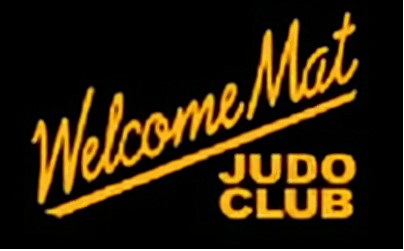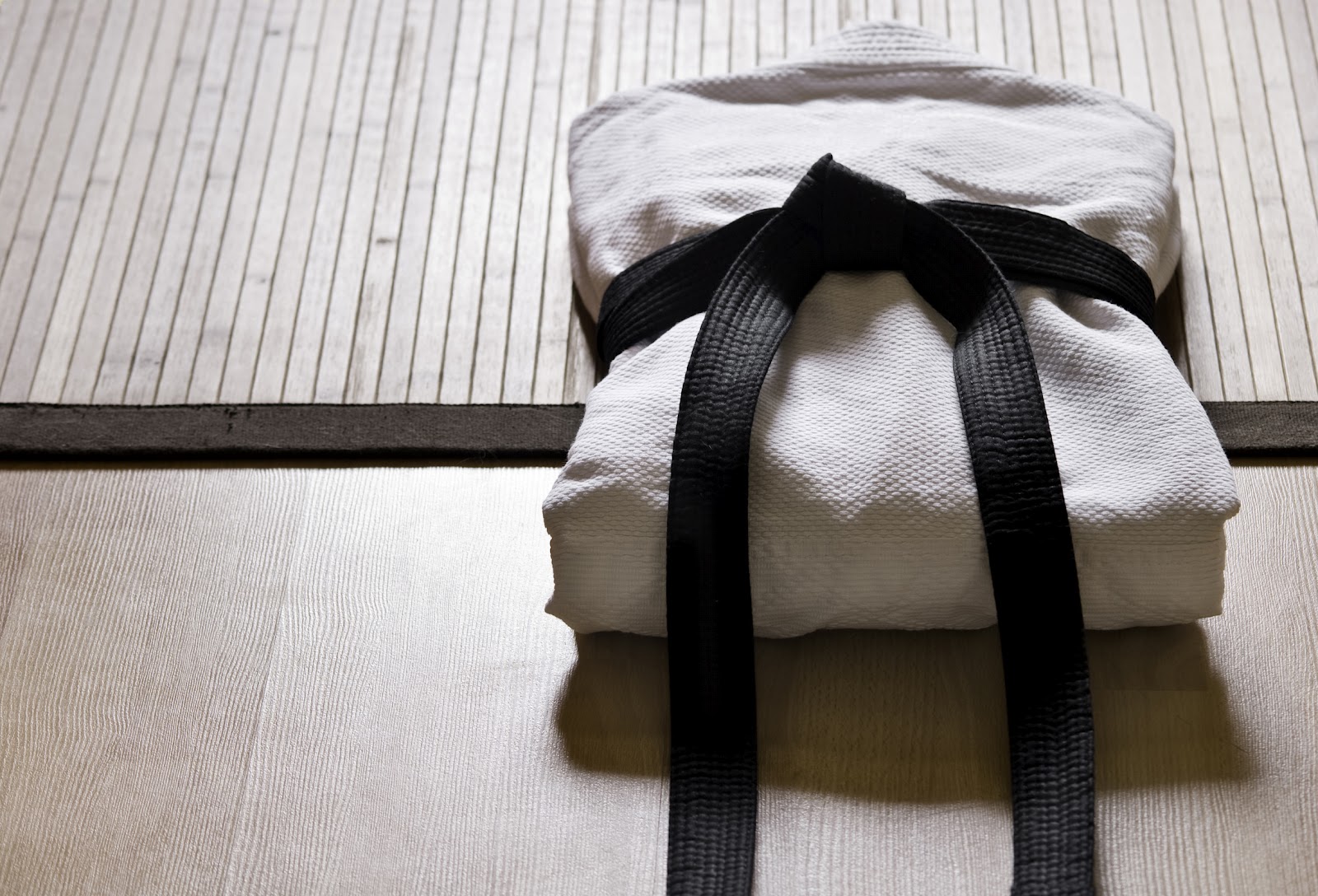Classes Held at the Kansas City North Community Center 3930 NE Antioch Rd. Kansas City Missouri 64117
Email: kbrink@welcomematjudoclub.org
Call: 816-969-9019
Cli.Welcome Mat Judo Club Rules
Mutual welfare and benefit, one of the key principles of judo, means always showing respect and practicing safely in the dojo.
Bowing
Respect Is Very ImportantKnow when a bow should be executed and perform it correctly.
1. Bow when entering or leaving the Dojo.
Bow when entering or leaving the Dojo.
2. Bow when stepping on or off the mat.
Bow when stepping on or off the mat.
3. Instructors and students bow to each other, in mutual respect, at the opening and closing of class.
Instructors and students bow to each other, in mutual respect, at the opening and closing of class.
4. Bow before and after working with a partner in class.
Bow before and after working with a partner in class.
5. Bow to your opponent before and after a match in contest.
Bow to your opponent before and after a match in contest.
6. Bow when accepting an award, Take the award with both hands as you bow.
Bow when accepting an award, Take the award with both hands as you bow.
7. Bow whenever you wish to give a demonstration of respect.
Bow whenever you wish to give a demonstration of respect.
8. Bows should be performed with Respect and Humility. They should be slow and measured and never hurried.
Bows should be performed with Respect and Humility. They should be slow and measured and never hurried.
Safety & Hygiene
Safety Is a Full Time Obligation
1. Never leave the Dojo without receiving permission from the instructor.
Never leave the Dojo without receiving permission from the instructor.
2. No food, drink or chewing of gum are allowed on the mat.
No food, drink or chewing of gum are allowed on the mat.
3. No non-judo activity is to take place during class time.
No non-judo activity is to take place during class time.
4. Report all injuries to the instructor immediately. When arriving at class with an injury, the instructor must be notified prior to the Start of class.
Report all injuries to the instructor immediately. When arriving at class with an injury, the instructor must be notified prior to the Start of class.
5. Shoes are NEVER to be worn on the mat. However, you should have something on your feet [i.e. shoes, sandals] anytime you are off the mat.
Shoes are NEVER to be worn on the mat. However, you should have something on your feet [i.e. shoes, sandals] anytime you are off the mat.
6. Water bottles are permitted in designated area at mat-side. Water bottles are to have water or electrolyte beverages only.
Water bottles are permitted in designated area at mat-side. Water bottles are to have water or electrolyte beverages only.
7. Never come to class under the influence of illicit drugs or alcohol.
Never come to class under the influence of illicit drugs or alcohol.
8. Members are to keep their Gi’s clean and in good repair. No holes or tears.
Members are to keep their Gi’s clean and in good repair. No holes or tears.
9. Finger and toenails are to be kept clean and trimmed to a reasonable length.
Finger and toenails are to be kept clean and trimmed to a reasonable length.
10. No jewelry or metal ornaments shall be worn during class unless specifically approved by the instructor.
11. Members without uniforms should not have anything in their pockets. Please wear loose fitting clothing and long sleeve sweatshirt.
12. No practicing of judo skills and techniques is allowed without permission of the instructor.
13. Spills are to be cleaned immediately. Trash should be placed in the proper container.
14. Blood must be cleaned up immediately using proper procedures and materials
15. Stay away from the edges of the mat when doing standing randori (free practice fighting)
16. Report any damage to the mats, unsafe conditions
Etiquette & Protocol
Always Show Respect
1. Always address Black Belts as SENSEI or COACH.
Always address Black Belts as SENSEI or COACH.
2. Show respect to instructors and higher belts at all times.
Show respect to instructors and higher belts at all times.
3. New students and guests should always have a partner to work with.
New students and guests should always have a partner to work with.
4. Students are expected to sit in proper fashion when resting or listening to an instructor. Sit in ANZA (cross legged) or SEIZA (on both knees). Never lay on the mat
Students are expected to sit in proper fashion when resting or listening to an instructor. Sit in ANZA (cross legged) or SEIZA (on both knees). Never lay on the mat
5. Seek to help each other. Be responsible for your safety and that of others.
Seek to help each other. Be responsible for your safety and that of others.
6. Higher-ranking students are to help lower ranking students adhere to all matters of protocol and etiquette.
Higher-ranking students are to help lower ranking students adhere to all matters of protocol and etiquette.
7. Never talk while the instruction is taking place.
Never talk while the instruction is taking place.
8. Never talk while in line-up. Stand still.
Never talk while in line-up. Stand still.
9. Arrive at class on time and mentally prepared for class. Strive to never miss practice.
Arrive at class on time and mentally prepared for class. Strive to never miss practice.
10. Never leave the mat or Dojo without the permission of the instructor.
11. Always be courteous. Bad language, rude comments, teasing, racism & bigotry will not be tolerated
12. If you know you will be absent from, or late for, a class, your instructor should be notified as soon as possible.
13. Always support club activities.
14. Always try! Never use the word “can’t.”
15. If you are late to class, wait for an Instructor to give you permission to join the class.
16. Always treat your fellow judo players with respect and dignity and avoid all horseplay, which disturbs or bothers fellow judo players.
Behavior Outside the Dojo
Respect and Honor Are Very Important!!!
Behave in a matter that will bring Respect and Honor to the Welcome Mat Judo Club.
1. Judo is to be only practiced in the DOJO under the guidance of a qualified Judo Instructor. Your Judo skills should never be used outside of the DOJO except in legitimate self-defense situations. Do not attempt to impress your friends with your judo skills. Do not demonstrate judo in public unless it is part of a club activity or unless you have received prior permission from your Judo Instructor.
Judo is to be only practiced in the DOJO under the guidance of a qualified Judo Instructor. Your Judo skills should never be used outside of the DOJO except in legitimate self-defense situations. Do not attempt to impress your friends with your judo skills. Do not demonstrate judo in public unless it is part of a club activity or unless you have received prior permission from your Judo Instructor.
2. Judo techniques should not be taught to anyone unless they are under the guidance of a qualified Judo Instructor.
Behavior When Visiting Another Club
You Represent Welcome Mat Judo Club
Behave in a matter that will bring Respect and Honor to the Welcome Mat Judo Club
1. Remove your shoes before entering a Dojo.
Remove your shoes before entering a Dojo.
2. Introduce yourself and ask permission from the instructor to participate in class before changing into your Gi.
Introduce yourself and ask permission from the instructor to participate in class before changing into your Gi.
3. Be attentive. Never argue or disagree with the way techniques are taught or presented.
Be attentive. Never argue or disagree with the way techniques are taught or presented.
4. Do not show off.
Do not show off.
5. Make sure you follow the Welcome Mat Judo Club Rules and Regulations on bowing. Some clubs do not require bowing. No one will take offense if you bow and they do not.
Make sure you follow the Welcome Mat Judo Club Rules and Regulations on bowing. Some clubs do not require bowing. No one will take offense if you bow and they do not.
6. Follow the rules and regulations of the Dojo you are visiting.
Follow the rules and regulations of the Dojo you are visiting.
7. Always thank the club members you worked with for sharing and working with you.
Always thank the club members you worked with for sharing and working with you.
8. Thank the instructor[s] for allowing you to participate.
Thank the instructor[s] for allowing you to participate.
Code of Conduct for Parents
The highest potential of athletics is achieved when competition reflects these "six pillars of character"
The essential elements of character building and ethics in athletics are embodied in the concept of sportsmanship and six core Principles sportsmanship, leadership, teamwork, responsibility, dedication, and professionalism.
1. Refrain from coaching their child or other players during tournaments and practices.
2. I will place the emotional and physical well-being of my child ahead of my personal desire to win.
3. Support the program by volunteering to assist the team in some way.
4. Be your child’s best fan; support him or her unconditionally.
5. Acknowledge your child’s effort, as well as his or her support of team members, adherence to player responsibilities, etc.
6. Support and root for all team members. That fosters teamwork.
7. Model good sportsmanship at all times during practices and competition, remember you are an ambassador for our club.
8. Don’t bribe your child or offer incentives for good performance. Instead, orient him or her to the enjoyment of participating and his or her responsibility to the team.
9. Encourage direct communication. If your child is having difficulties in practice or matches or can’t make a practice, encourage him or her to speak directly to the coaches.
10. Understand and display appropriate tournament behaviors (e.g., watch; make positive remarks; don’t berate players, officials or coaches). Remember, your child’s self esteem and game performance are at stake. Be supportive.
11. Monitor your child’s stress level at home. Ask questions to ascertain whether your child is having trouble balancing various activities in his or her life. Ask whether she or he is enjoying the sport experience. Help your child handle any stress effectively.
12. Monitor eating and sleeping habits. Ensure that your child is eating the proper foods and getting adequate rest.
13. Help your child keep his or her priorities straight, maintaining a balance among schoolwork, family responsibilities, chores, free time and organized-sport participation.
14. Keep sport in its proper perspective: Sport should be fun for you and your child. Highly skilled children and their parents must be especially careful to maintain a balanced view.
15. If your child’s performance produces strong emotions in you, maintain a calm demeanor. Your relationship with your child remains long after competitive sport days are over. Keep your goals and needs separate from your child’s experience.
16. Reality test: If your child loses but has played their best, help your child see that as a “win.” Remind him or her to focus on “process” and not only “results.”Children should derive fun and satisfaction from “striving to win,” and playing well and hard.



